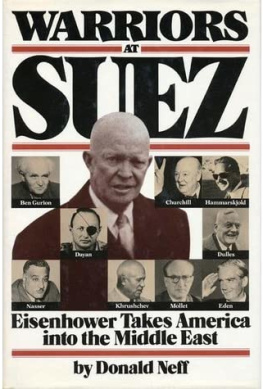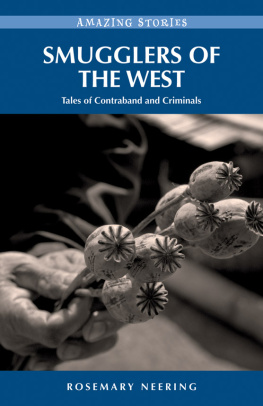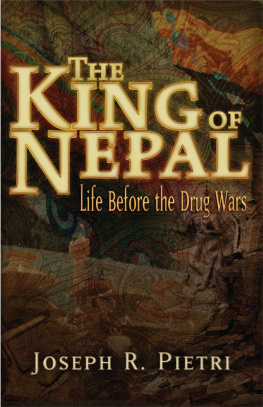PENGUIN | 
| CLASSICS |
HASHISH
HENRY DE MONFREID was an adventurer, seaman and smuggler. His publications include Secrets of the Red Sea and Sea Adventures.
HENRY DE MONFREID
Hashish
A Smugglers tale
Translated by HELEN BUCHANAN BELL
PENGUIN BOOKS
PENGUIN CLASSICS
Published by the Penguin Group
Penguin Books Ltd, 80 Strand, London WC2R 0RL, England
Penguin Group (USA) Inc., 375 Hudson Street, New York, New York 10014, USA
Penguin Group (Canada), 90 Eglinton Avenue East, Suite 700, Toronto, Ontario, Canada M4P 2Y3
(a division of Pearson Penguin Canada Inc.)
Penguin Ireland, 25 St Stephens Green, Dublin 2, Ireland (a division of Penguin Books Ltd)
Penguin Group (Australia), 250 Camberwell Road, Camberwell,
Victoria 3124, Australia (a division of Pearson Australia Group Pty Ltd)
Penguin Books India Pvt Ltd, 11 Community Centre,
Panchsheel Park, New Delhi 110 017, India
Penguin Group (NZ), 67 Apollo Drive, Rosedale, North Shore 0632, New Zealand
(a division of Pearson New Zealand Ltd)
Penguin Books (South Africa) (Pty) Ltd, 24 Sturdee Avenue, Rosebank, Johannesburg 2196, South Africa
Penguin Books Ltd, Registered Offices: 80 Strand, London WC2R 0RL, England
www.penguin.com
First published in France under the title Las Crosire de Hachich
This translation first published 1935
Published in Penguin Books 1946
Published in Penguin Classics 2007
All rights reserved
The moral right of the author has been asserted
Except in the United States of America, this book is sold subject
to the condition that it shall not, by way of trade or otherwise, be lent,
re-sold, hired out, or otherwise circulated without the publishers
prior consent in any form of binding or cover other than that in
which it is published and without a similar condition including this
condition being imposed on the subsequent purchaser
ISBN: 9781101493168
Contents
ONE
My Friend Floquet
The season was now too far advanced to contemplate going to Makalla. Summer had nearly come, and in a few weeks the western monsoon would be beginning to blow, so for the moment I gave up all idea of going to fetch the wood I needed for building my ship. The thought of having to fight my way back against the wind with a cumbersome cargo of planks and beams was anything but tempting.
My dream, though unfulfilled, would remain a source of secret happiness, giving me courage and strength to face life and wrest something from it. For men must always follow a dream, no matter what. If fortune does not favour the old, it is, perhaps, because they can no longer believe in those chimeras, those mirages of the spirit, which the young go for helter-skelter, so sure of being able to reach them that obstacles fall under their unheeding feet, before their existence has been suspected.
At the end of the first volume of my memoirs, I said I would speak at length of the shady means taken by the Government of Djibouti to have me condemned in 1915.
At that time I believed in justice; I had the childlike credulity of a savage. A judge to me was a being of superior essence, far above mere human emotions like hatred or envy, and I could no more have doubted this than I could have doubted my own conscience. But, alas, my illusions soon lay in the dust, and I sank into a quagmire of distress in which I floundered drearily, seeking in vain for one patch of solid ground.
When I read again my log-book written at this period, the bitter words rise from the pages and renew those long-past sufferings.
But why lay forth my misery? What good can it do? Why tear their illusions from those who have been lucky enough to keep them?
My only reason for referring at all to that nightmare of my past is to speak of an incident which resulted from it, and which put me in contact with a man who had belonged to the famous syndicate of dealers in arms from which I had bought my last cargo on credit.
As I recounted in Secrets of the Red Sea, the munitions which had been seized on the island of Maskali had been advanced to me by this syndicate. If I had not been a sort of Don Quixote at that time, with my head full of outworn ideas of chivalry, I should have boldly declared the truth, not caring if I did compromise my powerful suppliers, and in that case things might have turned out very differently for me. But I could not resist playing the romantically chivalrous part, and my beau geste led to my condemnation.
When I got back to Djibouti and had earned a little money by working as a diver, these honourable tradesmen had not the slightest scruple about taking it from me. What did they risk, since I had been fool enough to exonerate them from all responsibility, taking the entire blame on my own shoulders?
The agent for the firm in whose employment I had originally been demanded payment for the confiscated arms, and threatened to sue me for the money. All the other members of this honourable syndicate backed him up except one, Monsieur Floquet, who flatly refused to be a party to any such thing. He drew on his head the enmity of the others, for the moral reasons he advanced for not claiming any money from me constituted an eloquent reproach. Finally, the syndicate shied at calling in public opinion, for these people who trample all the virtues underfoot when they can do so with impunity are very sensitive about respectability and their reputations in the eyes of society.
Now when I look back on the events of that time across fifteen years experience of men, I wonder a little cynically whether Floquet acted from sheer love of justice, or simply from prudence.
He was a man who had always puzzled me, and the more I saw of him and the better I thought I knew him, the deeper in reality grew the mystery of his soul. At the moment of which I speak I felt for him a deep friendship, which increased as I sensed that he had the same feelings for me.
He was a curious-looking fellow; his colourless eyes, set in a pale face, did not seem to see, and made one uncomfortable as do the eyes of a blind man. He was slender and muscular, and although he was barely forty, his hair was snow-white. He wore it very long and brushed back off his forehead. His voice was as colourless as his eyes; he was generally taciturn, but when a subject interested him, he would suddenly wake up and become very voluble.
His employees quickly established themselves in his business; they were rapidly promoted to confidential positions and left unsupervised. They took unscrupulous advantage of this, seemingly with impunity, until one day for no apparent reason Floquet would fly into a terrible rage and sack the lot. His anger was a nervous reflex like the crazy courage of a coward in arms against his weakness.
One might deduce from this that Floquet was kind and indulgent only from moral weakness, and yet this man was more devoted than a father to my wife and children during my long absences. Nothing can make me forget his infinite goodness to them.
At this time I am sure that Floquet would have laid down his life for me, as I would mine for him. I believed him to be that rare and precious thing in a frivolous and treacherous world, a true friend, incapable of disloyalty, in whom one could have absolute confidence.
Yet at times this mysterious man showed peculiar tendencies, and these fugitive reflections of his hidden soul were terrifying, as are all things which come out of an abyss. For instance, he took pleasure in certain forms of cruelty, and loved to fire at cats sleeping unsuspectingly in shadowy corners. At the siesta hour, when beasts and men were asleep, overpowered by the intolerable heat, one could hear the sharp report of his rifle, then the cry of the wounded animal as it dragged itself away to die. Behind the closed shutters of the veranda Floquet would smile secretly in the dim light, and return silently to his comfortable chair to wait for the next chance.













